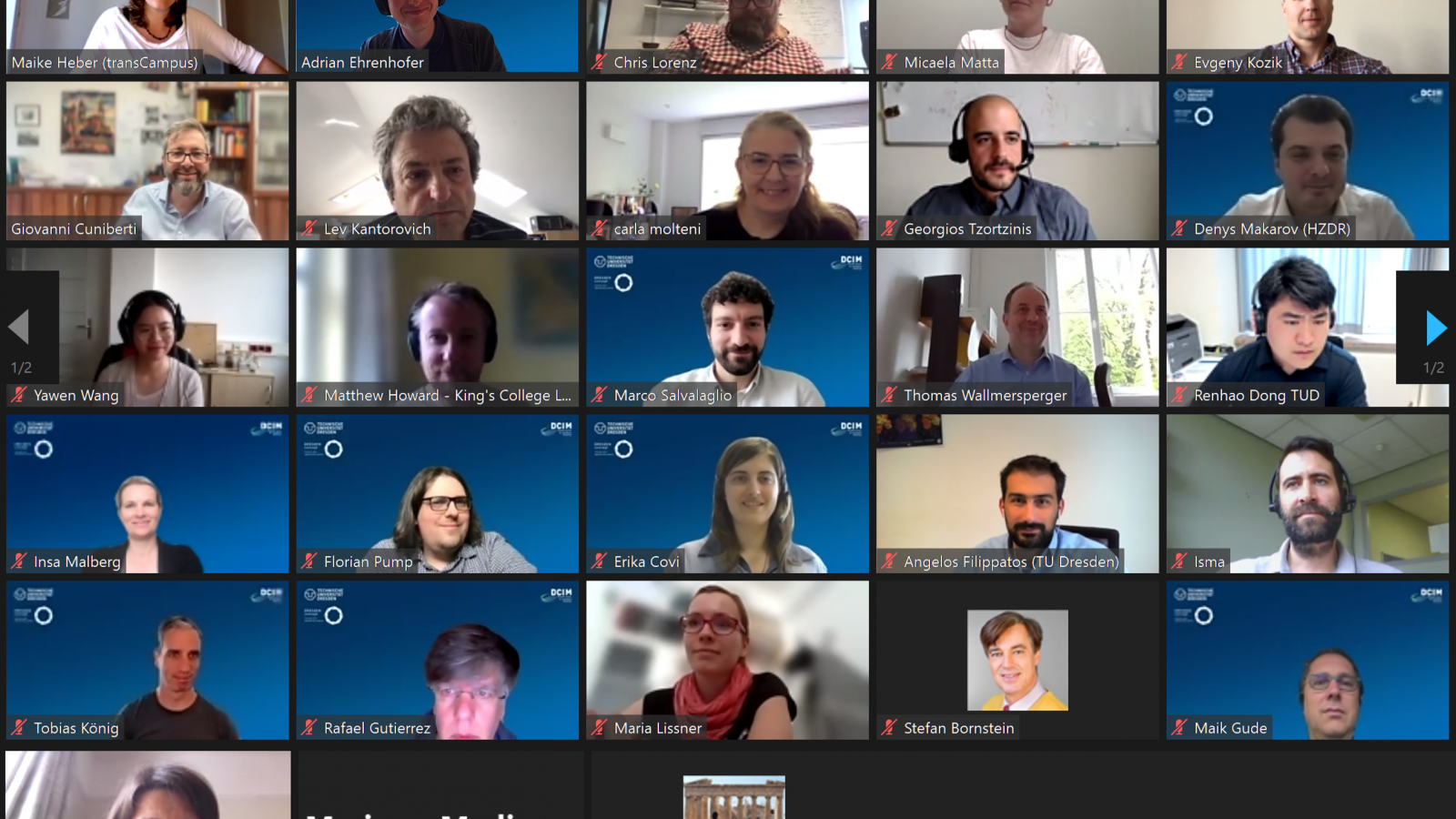As a result of the interdisciplinary workshop held on 6 May, and supported by transCampus seed funding, two new project groups are starting their joint research activities.
Adrian Ehrenhofer (TUD) and Matthew Howard (King’s) work together on the “Control of Intelligent Structures in Gradient Fields” cooperating on the machine-learning powered control of multi-sensitive continuum actuators. Micro-manipulators that are made of soft active materials are mostly constructed in very simple shapes, such as linear actuators (so-called artificial muscles) or cantilever setups. The project group aims at solving more complex problems such as shape adaptation. Therefore, the Dresden group, responsible for the experimental realisation, will build an analytical replacement model for the active behavior of the cantilever beam, meanwhile the King’s group will apply first a classical feedback control algorithm to the problem and in a second step a machine-learning base reinforcement control algorithm that is trained on the analytical model of the TUD group. The results should lead into a common publication or a project propsal.
The group around Lev Kantarovich (King’s) and Giovanni Cuniberti (TUD) was succesful with their joint project “Nonequilibrium Charge and Heat Transport in Nanomaterials”. They will pursue two project strands: In the first one, the group will develop a non-equilibrium Green’s functions (NEGF) framework of charge and heat transport in nanoscale materials by systematically going beyond the simple Landauer approach. Hereby both electronic and phonon transport channels will be treated self-consistently, including (in principle) electron-electron, electron-phonon and phonon-phonon interactions via diagrammatic techniques. The second strand, is based on the recently developed at KCL Generalised Langevin Equation method that can be used for studying non-equilibrium processes such as heat transport using molecular dynamics simulations. The current implementation is limited to being a proof of principle and requires proper development into a universal plug-in that can be used both in classical and DFT-based molecular dynamics simulation packages, making it therefore accessible to a broad group of computational researchers in Physics, Chemistry and Materials Science. For this, we will again rely on the DFTB+ code, which provides a good balance between computational efficiency and accuracy.


